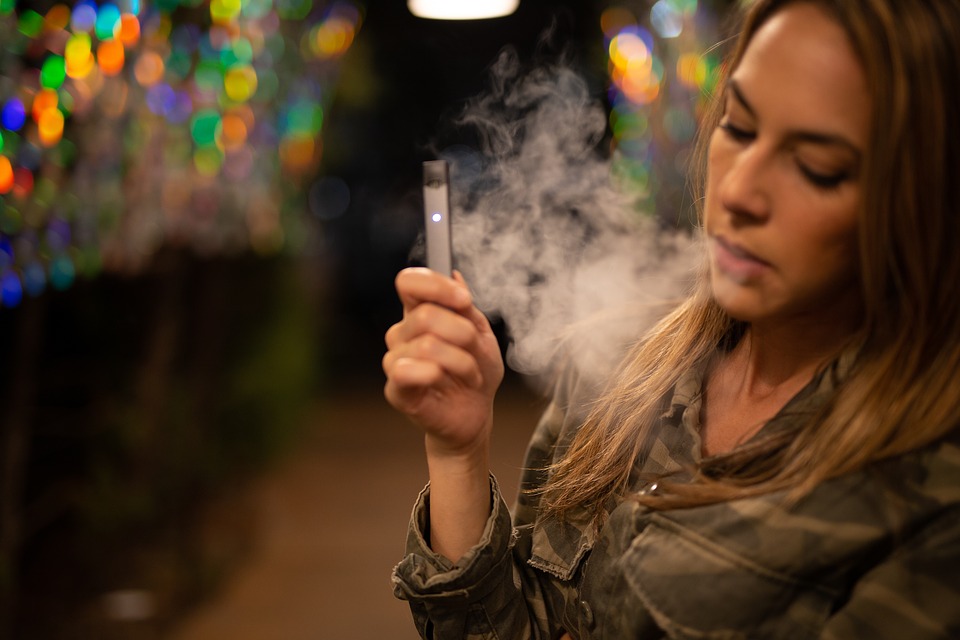 Becoming involved in new mass tort litigation can be an exciting, yet daunting prospect. Understanding the science and claims behind a litigation can be a time-consuming matter—here, we will outline monthly, some of the science and procedural history for a current mass tort.
Becoming involved in new mass tort litigation can be an exciting, yet daunting prospect. Understanding the science and claims behind a litigation can be a time-consuming matter—here, we will outline monthly, some of the science and procedural history for a current mass tort.
January’s focus: the JUUL litigations
There are several different types of suits in the Juul litigations:
• a multidistrict litigation (“MDL”);
• suits filed by attorney generals against Juul; and
• a wrongful death suit against the company
According to the product website, the Juul device is a vaporizer with regulated temperature control into which Juul pods filled with a proprietary e-liquid formulation are inserted. The e-liquid combines glycerol, propylene glycol, flavor, nicotine and benzoic acid.
Juul Labs heavily markets the product as a safer and easier way to smoke as compared to traditional cigarettes. Specifically, it is alleged that Juul targets teenagers with its marketing and fails to warn consumers about the serious risks associated with the product. A single Juul cartridge is roughly the equivalent to a pack of cigarettes or 200 cigarette puffs.
Studies show that teenage users of Juul products often fail to realize that are they consuming a higher amount of nicotine than traditional cigarettes. Some users don’t even recognize that they are consuming nicotine at all, instead believing that they are only vaping flavoring. Studies have shown that adolescent nicotine addiction causes substantial neural remodeling to those parts of the brain governed by dopamine or acetylcholine which are key in reward functioning and cognitive functioning.
To further its appeal to a youthful market, Juul products leave a sweet-smelling vapor for only a few seconds before dissipating, unlike the lingering heavy odor of traditional cigarette smoke. Additionally, Juul products are small and stylish and can be mistaken for USB drives and easily concealed from parents and teachers.
In September 2019, the FDA sent a letter to Juul CEO Kevin Burns warning the company that they have a continuing responsibility to take action to address the electronic nicotine delivery system (“ENDS”) youth addiction epidemic. On September 6, 2019, the Center for Disease Control and Prevention announced that it had found 450 possible cases in 33 states of smokers with severe lung disease linked to vaping, including five reported deaths. Retail giant Walmart announced in September 2019, that it would stop selling e-cigarettes in all its U.S. Walmart and Sam’s Club stores.
The MDL
On October 2, 2019, the Judicial Panel on Multidistrict Litigation (“JPML”) issued a transfer order, consolidating 10 suits filed in federal courts across the country against common defendant Juul Labs, Inc. to the U.S. District Court for the Northern District of California under Judge William Orrick. The JPML further stated in the order that in addition to the 10 suits currently in the MDL, it was aware of more than 40 suits that could potentially be related. The case is In Re: Juul Labs Inc., Marketing, Sales Practices, and Products Liability Litigation, Case No.: 2913 filed in the U.S. District Court for the Northern District of California. Plaintiffs in the MDL all similarly allege that defendant Juul Labs Inc. has marketed its e-cigarettes in a way knowingly designed to attract minors. Additionally, suits in the MDL allege that Juul markets its products as containing 20% less nicotine than they actually contain, thus influencing consumers who are looking to quit smoking into the buying the product.
Wrongful Death Suits
The first wrongful death suit was filed against Juul Labs on October 15, 2019, in federal court in the Northern District of California by Lisa Vail, the mother of deceased 18-year-old David Wakefield. Wakefield died in his sleep on August 31, 2019 after years of Juul use. In the complaint, Vail argues that Juul took advantage of minimal regulations and loopholes for e-cigarettes at a time when youth smoking was at an all time low. The plaintiff also points out that Juul pods originally were sold in “kid-friendly” flavors like mint, fruit and crème brûlée. David Wakefield began using Juul products when he was 15 years old after being exposed to the defendant’s marketing efforts on social media, through email and other online sources. Wakefield, the child of traditional cigarette smokers, was allegedly attracted to the candy-like flavors of Juul products as well the sleek compact design of the product. According to his mother, the plaintiff assured her that he had done his research on the product and that Juul was a safe alternative to cigarettes that did not pose the same serious health risks as cigarettes.
Once Wakefield began regularly using Juul products, his school performance began to severely decline and his emotional well-being was substantially altered. According to the complaint, the teenager suffered from severe mood swings if he did not have access to his Juul and, in one instance, became so enraged that he threw a mini refrigerator from the top floor of his home when he was unable to vape. Just a year after beginning to use the product, Wakefield was hospitalized for three days due to breathing and lung complications. During his hospital stay, it was determined that he was addicted to nicotine from Juul usage and hospital staff had to apply nicotine patches to his skin. Sadly, the teenager died due to lung and breathing complications within three years of using Juul products. Wakefield’s wrongful death claim is likely just the first of many such claims against Juul Labs.
The case is: Vail v. Juul Labs, Inc., Case No.: 3:19-cv-06597, in the U.S. District Court for the District of Northern California.
State Attorney General Suits
Similar to suits filed in the opioid litigations, Juul Labs is facing claims from a growing number of state attorney generals, including in New York, California, Illinois and Washington D.C., in state court on behalf of state residents. In the suits, the AGs argue that Juul’s aggressive advertising of its multi-flavored products contributed to a public health crisis that has left countless state residents, many of whom are teenagers, addicted to its products and fighting for their health. These suits point out the fact that in 2010, the U.S. Surgeon General concluded that nicotine has the same effect on the brain as cocaine and heroin. The suits further allege that even infrequent use of nicotine products is enough to put teens at risk for addiction due to the fact that their brains are still developing and are therefore prone to nicotine addiction at a much lower concentration than in adults over 26. AG suits also point out that in 2016, roughly one-third of surveyed teens reported that they thought Juul products were harmless. It is further argued that Juul has seized upon Big Tobacco’s advertising and flavoring tactics allowing it to profit at the expense of the health of state residents.
The suits are:
People of the State of New York v. Juul Labs Inc. in the Supreme Court of the State of New York, County of New York.
People of the State of California v. Juul Labs Inc. in the Alameda County Superior Court.
People of the State of Illinois v. Juul Labs Inc., Case No.: 2019CH14302, in the Circuit Court of Cook County.
District of Columbia v. Juul Labs, Inc. and Pax Labs, Inc., in the Superior Court of the District of Columbia.



